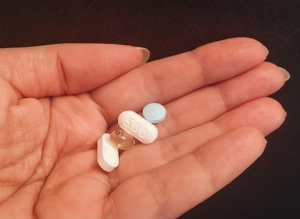Rise in type 2 diabetes in young people in England and Wales
Published 21 Aug 2018

The number of children and young people being treated for type 2 diabetes in England and Wales has gone up from 507 to 715 in four years, new figures show.
More than three-quarters were also obese, according to the NHS data.
Child health experts said the rise was "alarming" and the childhood obesity epidemic was "starting to bite".
Councils said more needed to be done to tackle the obesity crisis in children, particularly among minority ethnic groups, who were most affected.
Type 2 diabetes can lead to a range of health problems such as heart disease, strokes and kidney problems.
The condition occurs when the body cannot produce enough insulin to regulate blood sugar levels. It can be linked to obesity.
The figures come from an audit published by the Royal College of Paediatrics and Child Health of type 2 diabetes cases in specialist paediatric units.
They show a rise in young people receiving care for the condition between 2013-14 and 2016-17, but they make up a tiny percentage of the total population of under-25s.
Almost half of those treated for type 2 diabetes in 2016-17 were black or Asian, the figures show. They were also more likely to be female and living in a deprived area.
'Extremely worrying'
The Local Government Association, which receives funding for public health from the government, says the true number of young people affected could be higher.
It said it was "extremely worrying" that more young people are developing the condition.
Official data shows that one in five 10 and 11-year-olds is obese, and one in 10 four and five-year-olds is obese in England.
Prof Russell Viner, president of the RCPCH, said: "A rise in Type 2 diabetes of this magnitude is alarming and shows that the childhood obesity epidemic is starting to bite."
Kathryn Kirchner, clinical advisor at Diabetes UK, said one of the most important risk factors for type 2 diabetes was being overweight or obese, which is something that can be influenced.
"These figures are a stark reminder that we have a collective responsibility to push for the actions outlined in the most recent chapter of the childhood obesity plan, including clearer and more consistent food labelling."
A Department of Health and Social Care spokeswoman said: "We've invested billions in public health services and have already removed the equivalent of 45 million kilograms of sugar from soft drinks every year.
"Our new childhood obesity plan will now get children exercising more in schools, and reduce their exposure to sugary and fatty foods."
bbc.com
4 comments

You will also like

Diabetes: Discrimination, Professional Life, Plan Ahead... What do patients say?
9 Nov 2018 • 13 comments

 Facebook
Facebook Twitter
Twitter




